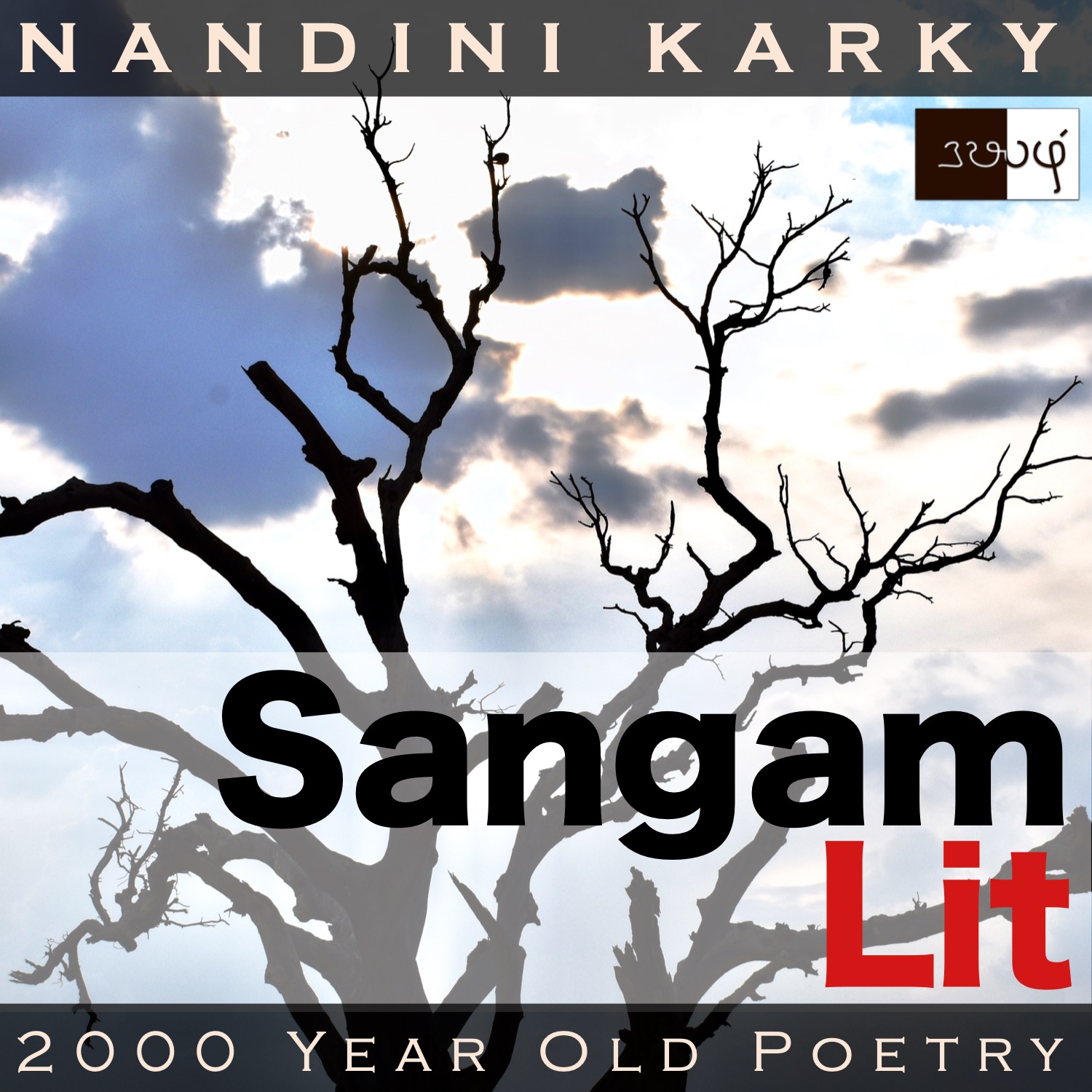Podcast: Play in new window | Download
Subscribe: Apple Podcasts | Spotify | Amazon Music | Android | iHeartRadio | TuneIn | RSS | More

In this episode, I present to you reflections from Natrinai Poem 3, written by Ilangeeranar, a poet who dealt predominantly with the ‘Paalai’ landscape of desert wasteland and adjoining regions. This is a poem, in which a man has something to say to his heart.
ஈன் பருந்து உயவும் வான் பொரு நெடுஞ் சினைப்
பொரி அரை வேம்பின் புள்ளி நீழல்,
கட்டளை அன்ன இட்டு அரங்கு இழைத்து,
கல்லாச் சிறாஅர் நெல்லி வட்டு ஆடும்
வில் ஏர் உழவர் வெம் முனைச் சீறூர்ச்
சுரன்முதல் வந்த உரன் மாய் மாலை
உள்ளினென் அல்லெனோ, யானே- உள்ளிய
வினை முடித்தன்ன இனியோள்
மனை மாண் சுடரொடு படர் பொழுது எனவே?
As I read the poem, known words like neem, gooseberries, children and farmers filled me with happiness, at the thought that these elements are there in my environment even after two thousand years. And yet this understanding, was just the surface. There were so many layers to this poem, as I attempted to scale this hill again and again.
The essence of this verse is this: On the long branches of the neem tree, there sits and broods an eagle that has just laid its eggs. Unaware of the sorrow of this bird, near the trunk of the same neem tree, children are playing happily. Just like these children, O heart, you forget the sorrow in my mind. Remember that evening in that harsh wasteland where I had travelled afar, when I thought of my sweet lady in my home, speaking of her sorrow to the lamps she was lighting up, yearning for me, wondering when I would return. Forgetting that sorrow, you are pushing me to leave her and go in search of wealth again. I shall not heed you – You, who appreciates not, my sorrow!
Let’s try to savour this verse from a different perspective. Imagine a camera traversing the lines of this poem. It first soars skywards and focuses on the long, extending arms of the neem tree when it sees ‘வான் பொரு நெடுஞ் சினை’. Halting here, it zooms on an eagle sitting on the very top and further, into its expression. The eagle seems worried and brooding. Perhaps, about the future of the eggs it has laid, in the harsh heat of this wasteland. Recording that expression, the camera then descends downwards taking in view the cracking, broken trunk of the same tree and falling all the way down to the dot-like shade in புள்ளி நீழல். Let’s pause for a minute in that dot-like shade. Why would it be dot-like? Surely because the heat has wilted away the leaves of the tree, leaving nothing but a mere dot of a shade. And continuing with the descent, in நெல்லி வட்டு ஆடும், the camera falls on children playing gleefully, using gooseberries as marbles. This brings to mind, the expression ‘நெல்லி வட்டு கண்ணாலே’ in a modern Tamil film song, a folk number, in which a lady describes the beckoning eyes of her man, thus. Echoes of Sangam even in the scientific age!
From there, the camera pans and captures the surroundings. In வெம் முனைச் சீறூர்ச், we see a harsh wasteland. In this place, there are no ploughs for villagers. The bows and arrows of the highway robbers turn into ploughs for them to harvest wealth from travellers traversing this road. And then the camera turns skywards to capture the time. It’s dusk and it seems to relay a scene from faraway in the man’s mind. Zooming inward, into his mind’s eye, we see his lady, described as ‘உள்ளிய வினை முடித்தன்ன இனியோள்’, meaning a lady as sweet as that satisfaction that arises from completing something one set out to do. Isn’t that a delicious simile? She is lighting lamps but with sorrow, thinking of her man, so far away, wondering when he will return. Recollecting that sorrow, the camera then focuses on the man, who chides his heart for forgetting that sorrow and pushing him out to leave in search of wealth again. A heart that seems to act as if unaware of the sorrow in him, just like those playing children unaware of the pensive eagle atop.
This is a poem that brings to the fore, the pain of being apart from a loved one. A weighing of priorities that goes on! Wealth or love? We find these echoes even today in our long distance relationships. Should one seek new opportunities or be in the care and comfort of loved ones? Questions that perhaps resound in the heart of every immigrant, as they look back at homeland with nostalgia.




Wow..amazing